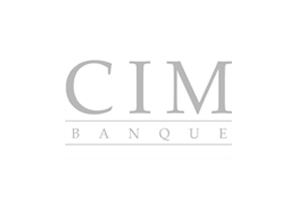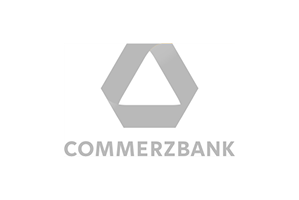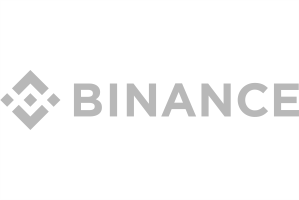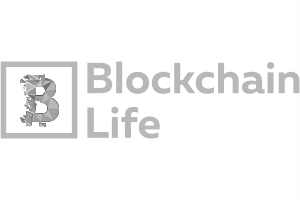In order to become a holder of the Ireland E Money Institution license, several essential conditions must be strictly observed. Among them are the permission of the Central Bank of Ireland and the provision of relevant information for operating an electronic money institution in Ireland.
E-money serves as digital cash, usable via software or hardware, primarily loaded onto prepaid cards or electronic wallets.
In 2017, 68% of Europeans utilized mobile payments and digital wallets, a trend supported by 84% of Europeans active online. Research indicates a preference for digital wallets in loyalty programs (63%) and cashless payments (56%). The volume of mobile payments in Europe is expected to surge from €52 billion to €148 billion by 2021.
Benefits of Acquiring an Ireland EMI License
Securing an Ireland E Money Institution Licence offers numerous benefits:
- Ranked among the top 15 for global innovation.
- Leads the world in investment incentives.
- Attractive low corporate tax rate of 12.5%.
- Top-rated globally for workforce flexibility and adaptability.
- Considered the prime investment destination in Western Europe.
- Features in the top 10 worldwide for education and skill levels.
- Holds the position as the second most competitive economy in Europe.
Compliance and Regulation Overview
The Central Bank of Ireland is the authoritative body overseeing firms engaged in services like payment processing, e-money services, as well as lending and investment activities. Obtaining an Ireland Payment
Institution License from this regulator is essential for those aiming to offer payment services, including processing and remittance, within Ireland.
Under the realm of Ireland E Money License, the Payment Service Directive 2 (PSD2), an EU Directive (Directive 2015/2366), plays a crucial role. It outlines the standards for entities eager to provide payment services, impacting a wide range of institutions, from banks to e-money firms and their clientele.
The enactment of PSD2 on 13 January 2018 had several significant aims:
- Enhancing the integration and efficiency of the European payments market.
- Balancing the competitive environment for all payment service providers, including newcomers.
- Elevating the safety and security of payment transactions.Fortifying consumer protection measures.
Ireland E-Money Institution and PI License Services
The EMI and PI license in Ireland allows you to provide various financial services, optimizing operations and improving the quality of customer service. The main services include
- Issuing electronic money, such as prepaid cards and e-wallets (for EMI).
- Services facilitating cash deposits into payment accounts, alongside comprehensive account management operations.
- Withdrawal services, ensuring seamless access to funds and account management.
Execution of diverse payment transactions:
- Direct debits, including one-time setups.
- Payments via payment cards or similar devices.
- Credit transfers and standing orders.
Credit-based transaction services, covering:
- Direct debits and payment card transactions.
- Credit transfers, including scheduled recurring payments.
- Issuance of payment instruments and acquisition of payment transactions.
- Money remittance services.
- Payment initiation and account information services.
Ireland PI and EMI License Features
An Ireland PI and Ireland Electronic Money License grant significant operational privileges, ensuring wide-ranging financial services across Europe. The license facilitates:
- Recognition across all EEA (European Economic Area) countries via ‘passporting’, allowing operations throughout the EEA with a single license.
- Issuance of payment accounts equipped with IBAN codes for use across Europe.
- Participation in payment schemes like SEPA.
- Issuance of Visa or Mastercard payment cards to both personal and business customers.
EMI License in Ireland and Luxembourg
When it comes to obtaining an EMI license Ireland, the process is controlled by the Central Bank of Ireland. The key stages are pre-application consultation, initial review, detailed assessment, notification of results, and final decision notification. It is equally important to prepare the relevant documentation, including legal status, operational plans, financial forecasts, organizational structure, and compliance measures. Particular emphasis is placed on consumer protection and operational security, demonstrating thorough due diligence and compliance with regulatory standards.
Considering Luxembourg for obtaining a license, the Commission de Surveillance du Secteur Financier (CSSF) is in charge of regulation. It all starts with an initial engagement and a detailed application process that includes a fee. In addition, a presentation of the project and key personnel is required, followed by a review and compliance check. Based on transaction volumes, entities must comply with periodic reporting and payment schedules.
Ireland E-Money Institution License Application
Securing a PI and EMI License in Ireland involves a structured process.
Stage 1. Pre-Application Consultation
An initial meeting to discuss the application.
Stage 2. Acknowledgment of Application
Within three working days of submission, the Central Bank confirms receipt of the application for authorization or registration.
Stage 3. Initial Review for Completeness
The Central Bank evaluates if the application includes all necessary information and documentation within ten working days. Insufficient applications require resubmission.
Stage 4. Detailed Assessment
The application undergoes a thorough review against authorization requirements over 90 working days, pausing if additional information is needed. Failure to respond within 60 working days results in the application not proceeding.
Stage 5. Outcome Notification
Post-assessment, the Central Bank communicates the decision through:
- A letter proposing authorization or registration if the assessment is positive, potentially with specific conditions.
- A Notification of Assessment Letter if the application does not meet the criteria.
Stage 6. Final Decision Communication
Within ten working days of a satisfactory assessment conclusion, the applicant receives a final decision letter detailing authorization, registration with conditions, or refusal.
Documentation for Ireland EMI License
Application Form
Contains identification details and the license request for E-money or Payment Institution.
Legal Framework
- Articles of Association and Constitution: Documents the legal structure.
- Proof of legal registration.
- Detailed description of past interactions with regulatory authorities, if any.
Operational Plan
- Description of the scope and types of activities.
- Provision of payment services: Details on the methods of fulfillment.
- Preliminary contract plan.
Strategic Planning
Business plan and marketing plan, including strategies and a projected budget for three years.
Information on initial capital, which indicates the amount of capital required.
Organizational Structure
- A visual representation of the organizational structure.
- Estimated number of employees.
- Detailed information on outsourcing operations.
Financial Requirements
Proof of capital for providing payment services (from 20,000 to 125,000 euros) and electronic money services (350,000 euros).
User Protection Measures
Approach to protecting the funds of service users.
Governance and Compliance
- Internal oversight mechanisms.
- Compliance with anti-money laundering and anti-terrorist financing standards.
Security and Risk Management
- Incident handling procedures: Security-related incidents and complaints.
- Data protection: Management of sensitive payment data.
- Disaster recovery and business impact analysis.
- Risk assessment and IT security measures.
Assessments and Audits
- Assessment of significant investors.
- Suitability of directors and management team.
- Information about the official auditors and firms.
Insurance Coverage
Professional liability insurance to initiate payments and provide information services on accounts.
FAQ
What licenses can fintech companies obtain in Ireland?
Fintech companies in Ireland can secure an Authorized Payment Institution License (Ireland Api License), an Authorized E-money Institution License (Ireland Aemi License), or a Small E-money Institution License, enabling them to offer a range of financial services.
What are the prerequisites for acquiring these licenses?
Key prerequisites include a local team of 8-9 covering core company functions, initial capital of EUR 125,000 for Payment Institutions, and EUR 350,000 for E-money Institutions, with no initial capital required for small Payment Institutions. There are no fees for application or registration.
Can you describe the application process for these licenses?
The process involves a pre-application meeting, application submission and acknowledgment, an initial review, a detailed assessment by the Central Bank of Ireland, and finally, the notification of the decision. It’s designed to ensure applicants meet comprehensive regulatory standards.
What documentation is needed for the application?
Necessary documentation includes an application form, legal structure evidence, operational and business plans, organizational details, initial capital proof, and policies on governance, security, and compliance, all aimed at demonstrating operational readiness and compliance with regulatory requirements.








